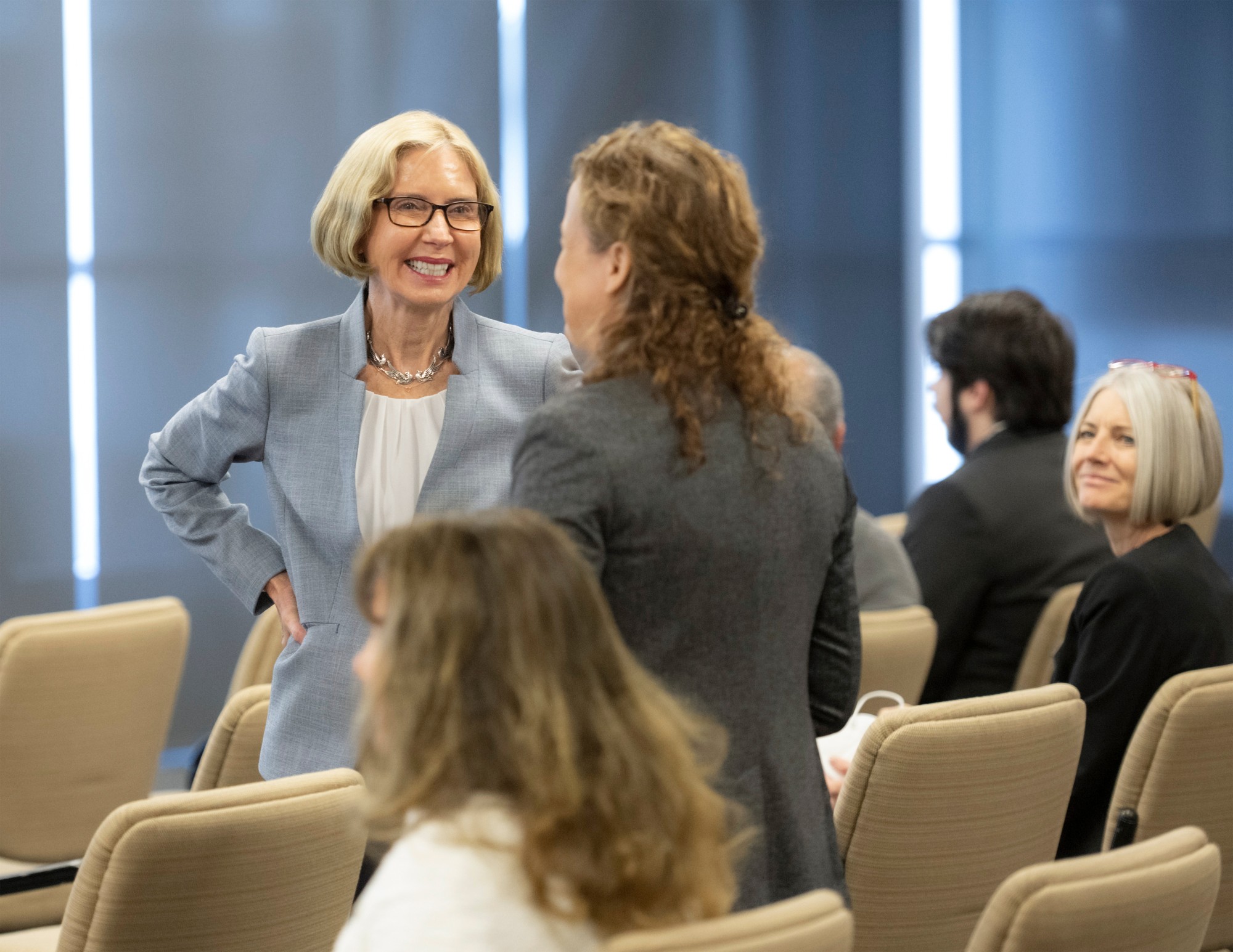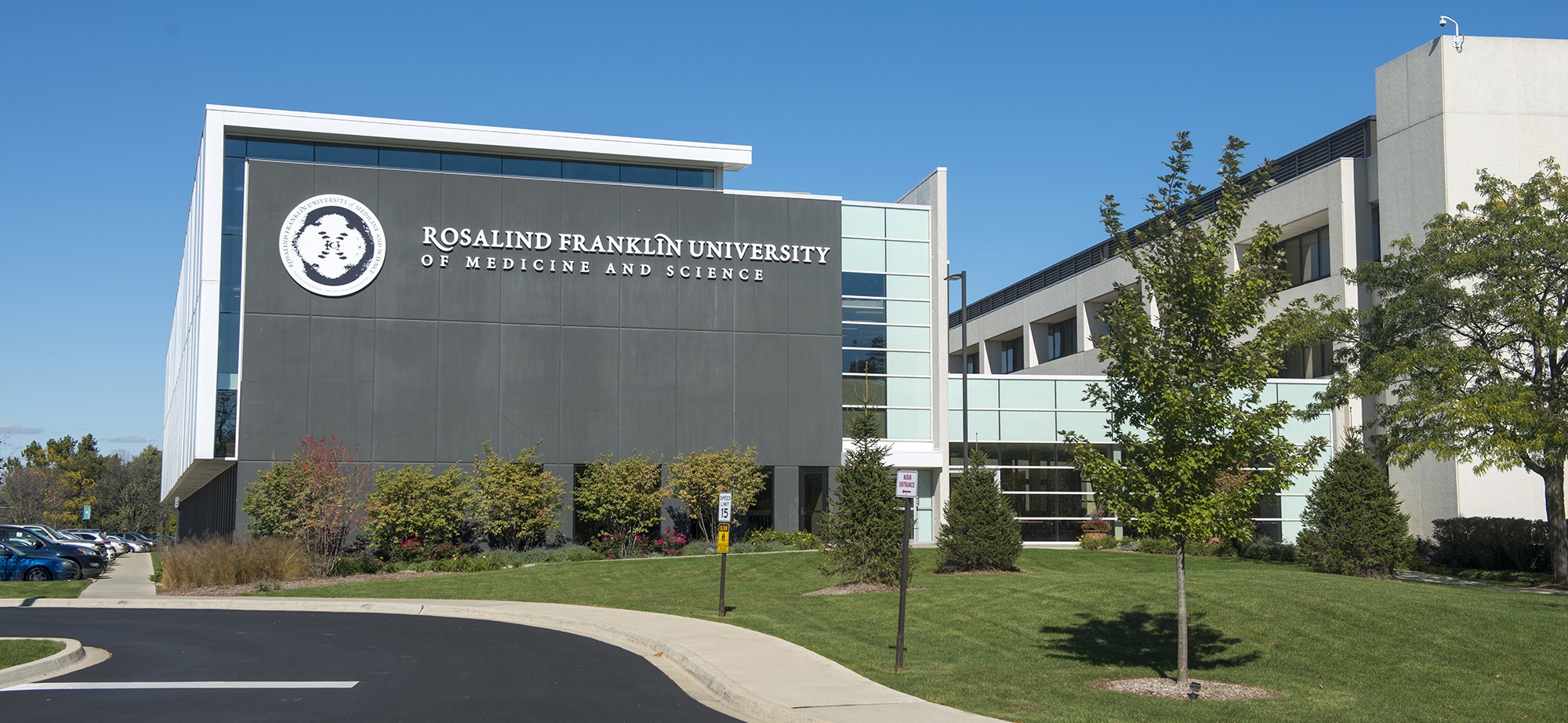President and CEO Wendy Rheault, PT, PhD, FASAHP, FNAP, DipACLM has served the university in numerous faculty and administrative capacities for more than 40 years.
Author Page
Intentional Relationships
Community & Service
As a teen in Canada, I helped care for a child who had cerebral palsy. The physical therapist would visit and spend an hour with the boy. That time spent in empathetic, compassionate care and the integration of care — physical, speech and occupational therapy, psychology, and social work — improved the well-being of the child and his entire family. The relationship-building was a powerful lesson.
Today, as we incorporate artificial intelligence (AI) and other technologies into learning and practice, healthcare professionals’ biggest challenges include time and care. Rosalind Franklin University supports an interprofessional team approach to care and a commitment to community health.
Advancements in technology are transforming health professions education, patient expectations and health care, itself. Today, universities need to educate for quality improvement and innovation, data analytics and digital medicine, adaptability, and values-based leadership. We need to be even more intentional about educating for empathy and compassion, which help strengthen the clinician–patient–family relationship.
Health care is a relationship. Patient satisfaction is closely tied to the quality of their relationships with their health caregivers. Do our patients feel listened to? Do they feel respected? Do they feel cared for?
AI tools are already reducing some of the cognitive and documentation burdens of clinical care, giving future and practicing clinicians more time to focus on how they can better support their patients and offer personalized care. As AI learns to better augment human intelligence, we need to learn how to better uphold the human and nurture the relationship at the heart of care.
So much has changed during my nearly 45 years at RFU. I arrived before personal computers were in common use. I’m leaving as humanoid robots are assisting with patient monitoring and providing companionship to the elderly. The faster we hurtle toward more AI- and quantum-driven breakthroughs, the more I’m convinced of the critical importance of compassionate, patient-centered care. People will continue to seek out and value human-to-human interactions. The human touch will continue to promote trust and healing.
As I prepare to step down as president of Rosalind Franklin University, I know our community will continue to flourish in the hands of those who are committed to shaping a culture where the human is always valued, whatever changes come.
Published July 8, 2025

